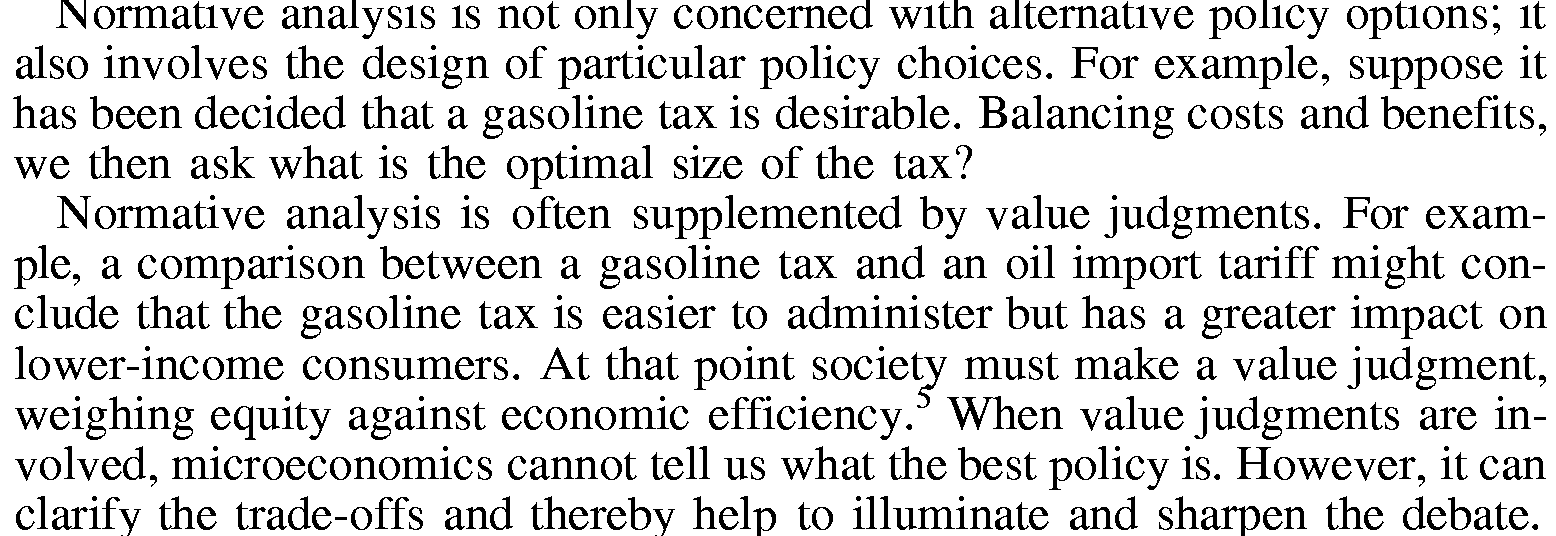
- •Lecture 1.
- •Introduction. The Subject Matter of Microeconomics
- •1 . The Subject Matter of Microeconomics
- •2. The use and limitation of Microeconomic theory. Economic methodology
- •2.1. Microeconomic models
- •2.2. Positive and Normative Analysis
- •Assumptions: Rationality and Self-Interest
- •Resources
- •3. Production Possibilities Frontier as a Model Illustrating Scarcity
- •Table 1
- •Opportunity Cost
2.2. Positive and Normative Analysis





cies.

Assumptions: Rationality and Self-Interest
The assumption is that human beings are highly rational and self-interested.
Human beings make the choices that give them the best possible advantage, given the circumstances they face. Circumstances include the prices of resources, goods and services, limited income, limited technology for transforming resources into goods and services, and taxes, regulations, and similar objective limitations on the choices they may make.
Most economists assume that economic systems work as if they consisted of rational, self-interested persons. After all, it is averages that count for these purposes. People are of all sorts; sneaky and altruistic, smart and dumb, but if the average is a person who is rational and self-interested, then the system will "act as if" people in general were rational and self-interested. At least, that is the basis of "neoclassical" economics: it is assumed that deviations from rational self-interest are random and will cancel out and so the system will act as if everyone were rational and self-interested.
Resources
Generally, the market economy can grow larger if any of the resources available to it becomes more plentiful. In other words, we can produce more outputs if we use more inputs. Traditionally, economists speak of three major kinds of resources, or, in other (and more traditional) words, three factors of production. The three "factors of production" are
land - the "original and indestructible powers of the soil" and natural resources, such as coal, oil, and metallic ores.
There are, of course, some important differences. Coal and oil, once they are dug out or the ground and burned, are gone for ever. In other words, they are "wasting resources." On the other hand, the fertility of the soil does not have to be a wasting resource, if the farmer uses farming methods which maintain fertility. But this difference is not absolute. Copper ores, for example, may be used and then recycled.
labor - is the most important resource. It can be determined as human’s ability to directed action and thus requires that the human being have some motivation.
capital consists of all goods produced by human labor (with other resources) and used in the production of still more goods and services; in other words, produced means of production. Some examples are: machinery, houses and other buildings, grapevines, fruit trees and hogs on the hoof, and human capital
Thus, investment can be a source of growth. In the long run, probably, discoveries are even more important. Discovery of new sources of raw materials certainly can lead to a higher standard of living. We can also discover new methods of doing things. The discovery of new methods - new techniques and technologies - is called "technical progress."
Scarcity means that available resources are insufficient to satisfy all wants and needs. Absent scarcity and alternative uses of available resources, there is no economic problem. The subject thus defined involves the study of choices as they are affected by incentives and resources.
